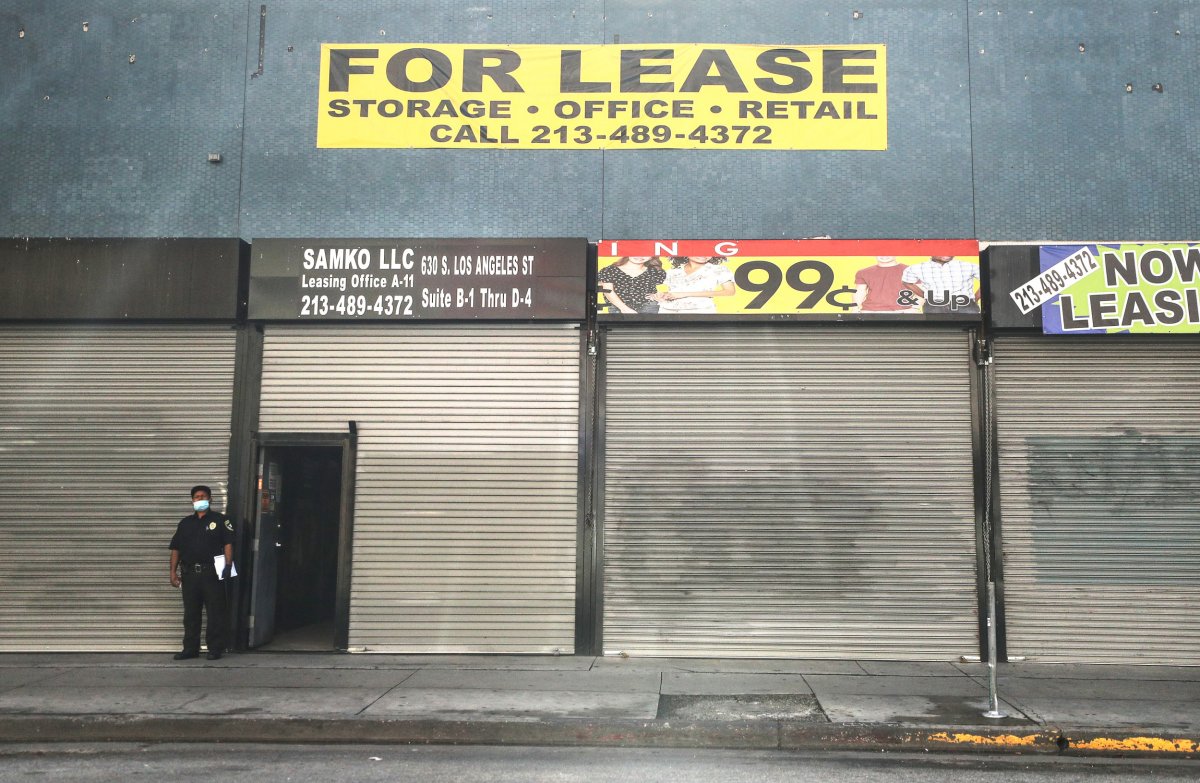The global economy, heading for its worst year since the end of the Second World War, could "take years" to fully recover to its pre-coronavirus norms, economists warned.
The consultancy Capital Economics said in an update that it forecasts the global economy to fall by more than 3 percent in 2020, down from its previous forecast of around 3 percent growth. Such a slip would mark the worst year since 1945, when global gross domestic product (GDP) declined by 5.5 percent. "Most of the output lost in the first half of this year will probably be lost forever," wrote Vicky Redwood, senior economic adviser at Capital Economics.
On Monday, the Federal Reserve's Weekly Economic Index collapsed to lower than during the Great Recession. The index measures U.S. economic activity on a weekly basis using private sources such as industry groups and polling companies. "Developments in the past week saw the index fall to a level unseen since 2008," wrote the Fed economists who compile the index.
Last Thursday, the Department of Labor reported 3.3 million unemployment claims for that week across the U.S., the highest number since records began in 1967. The previous week saw 281,000 jobless claims.
Measures to manage the coronavirus pandemic such as quarantines and lockdowns have choked the global and domestic economies, causing a sharp and sudden decline in demand and output that has caused millions of job losses.
It is widely accepted by economists that the global economy is in a deep recession. But this differs from the previous recession caused by the financial crisis, which was brought about by complex structural issues.
Instead, this is what is known as an exogenous shock — a sudden and unexpected external event that harms the economy — and there are hopes of a V-shaped recovery; a deep and quick recession followed by a similarly sharp and speedy period of healing.
Several governments have introduced vast and unprecedented stimulus packages to help their economies through the worst of the current shock. The U.S. Congress passed last week a $2.2 trillion stimulus bill, including checks for Americans and government loans for businesses.
Redwood of Capital Economics wrote that while the supply-side of the economy will probably recover quickly as people return to work once the pandemic passes, there may be a lagging problem with demand.
"The world is heading for the sharpest and deepest global slowdown since WW2," Redwood said. "Assuming that the virus is brought under control within a few months, the subsequent rise in world GDP should also be sharp. However, it could still take years for demand to recover completely."
Demand could be subdued by lingering fears of a second wave of the virus, Redwood said. Demand for travel may weaken, firms will begin to pay back the loans that saved them, and more public debt could beget another period of government austerity.
"Most economies should ultimately return to the path of output they were on before the crisis," Redwood wrote. "We are not so pessimistic as to expect the U-shaped recession that some are predicting, with economies bumping along the bottom for a long time. In fact, this recovery should be strong by past standards.
"However, with demand weakness lingering, it may well take a few years to get back to where we were and even longer for some economies. Moreover, the world that follows may be fundamentally different in many respects, such as the role of the state and the future of globalization."

World Health Organization advice for avoiding spread of coronavirus disease (COVID-19)
Hygiene advice
- Clean hands frequently with soap and water, or alcohol-based hand rub.
- Wash hands after coughing or sneezing; when caring for the sick; before, during and after food preparation; before eating; after using the toilet; when hands are visibly dirty; and after handling animals or waste.
- Maintain at least 1 meter (3 feet) distance from anyone who is coughing or sneezing.
- Avoid touching your hands, nose and mouth. Do not spit in public.
- Cover your mouth and nose with a tissue or bent elbow when coughing or sneezing. Discard the tissue immediately and clean your hands.
Medical advice
- Avoid close contact with others if you have any symptoms.
- Stay at home if you feel unwell, even with mild symptoms such as headache and runny nose, to avoid potential spread of the disease to medical facilities and other people.
- If you develop serious symptoms (fever, cough, difficulty breathing) seek medical care early and contact local health authorities in advance.
- Note any recent contact with others and travel details to provide to authorities who can trace and prevent spread of the disease.
- Stay up to date on COVID-19 developments issued by health authorities and follow their guidance.
Mask and glove usage
- Healthy individuals only need to wear a mask if taking care of a sick person.
- Wear a mask if you are coughing or sneezing.
- Masks are effective when used in combination with frequent hand cleaning.
- Do not touch the mask while wearing it. Clean hands if you touch the mask.
- Learn how to properly put on, remove and dispose of masks. Clean hands after disposing of the mask.
- Do not reuse single-use masks.
- Regularly washing bare hands is more effective against catching COVID-19 than wearing rubber gloves.
- The COVID-19 virus can still be picked up on rubber gloves and transmitted by touching your face.
Uncommon Knowledge
Newsweek is committed to challenging conventional wisdom and finding connections in the search for common ground.
Newsweek is committed to challenging conventional wisdom and finding connections in the search for common ground.
About the writer
Shane Croucher is a Senior Editor based in London, UK. He oversees the My Turn team. He has previously overseen ... Read more
To read how Newsweek uses AI as a newsroom tool, Click here.








